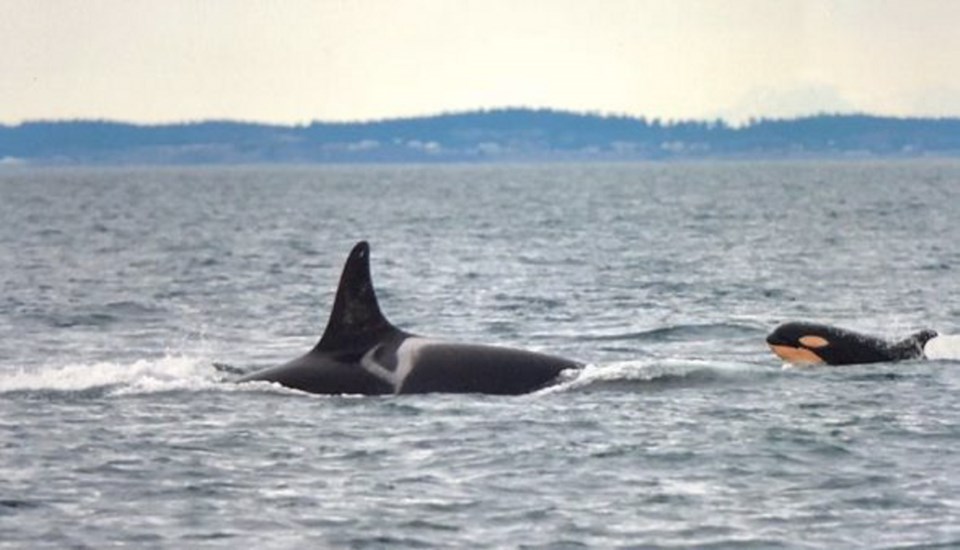Researchers say there’s a new calf among the population of critically endangered killer whales that live in the waters between B.C.’s Gulf Islands and Washington state.
Ken Balcomb, founding director of the Center for Whale Research, said that the calf was first spotted on Thursday, when TV stations in the Seattle area aired live aerial footage of several groups of killer whales in Puget Sound, and discerning viewers were able to see a very small orca among them.
Researchers confirmed the birth the next day, dispatching a team from San Juan Island that encountered the whales as they exited Admiralty Inlet with the calf.
The orca calf will be designated L124, signalling its connection to the L pod of southern resident killer whales, a clan comprised of three pods: J, K, and L.
L124 is the third calf born to a 31-year-old orca known as L77.
Her first calf, born in 2010, did not survive its first year. A female born to L77 in 2012 and now known as L119 did survive. The survival rate for orca calves is about 50 per cent.
Balcomb said the newest youngster looks healthy. Its sex is unknown at this time, but researchers are hoping for a female that eventually help replenish the southern resident killer whale population, which is now just 75.
The whales have been starving amid a dearth of salmon. Vessel noise and pollution have complicated their plight.
No calf born in the past three years has survived.
One whale drew international attention when she pushed her dead calf for 17 days last summer, keeping the body afloat with her head.
Two other orcas are known to be sick, and researchers fear they could die within months.
— With files from The Associated Press



